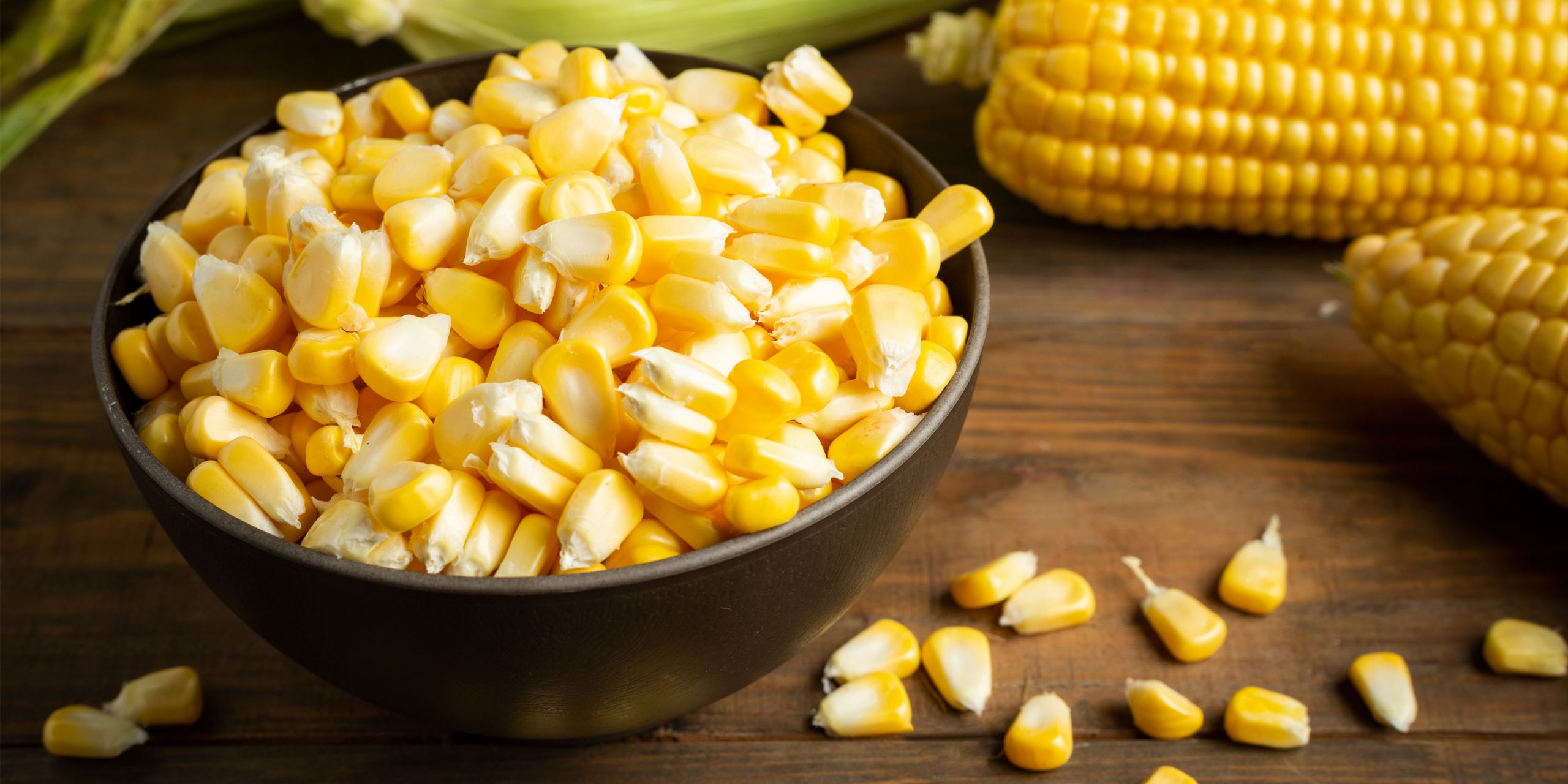Is Sweet Corn Good for Diabetes?

Sweet corn, in any form, shape or size, makes for a delicious hunger-crusher. Boiled corn kernels, jazzed up with lime juice and chaat masala, have been my go-to snacks for evening commute back home.
And who doesn’t enjoy munching on roasted corn-on-the-cob? But when it comes to complications of diabetes, one is always cautious.
Sweet corn is a popular vegetable enjoyed by many for its sweet flavor and versatility. If you have diabetes or are managing blood sugar levels, you might be wondering, “Is sweet corn good for diabetes?”
This article explores the potential benefits and considerations of including sweet corn in a diabetes-friendly diet.
Is Boiled/ Sweet Corn Good for Diabetes?
The humble sweet corn packs a mighty punch when it comes to delivering nutrition along with taste. Yes, it does have a high amount of sugar and sweet corn carbs but it is also a good source of Vitamin C and antioxidants.
Moreover, its high fibre content helps regulate your bowel movement. Boiled corn has a low GI of 52 which means that it breaks down gradually during digestion and slowly releases glucose in the blood stream.
Does Sweet Corn Raise Blood Sugar Levels?
In one word, yes, it does. Sweet corn carbs are the main constituents of this starchy vegetable and we all know how qucikly simple starch or carbs break down into glucose and spikes blood sugar levels.
However, sweet corn does have a low GI score and low glycemic load of 8.5. This implies that it doesn’t bring about a rushed or sudden spike in your blood glucose levels.
And when we consume it moderately, in small portion sizes, paired along with the optimum food groups, it contributes towards our overall better health. Whew, what a relief!
To know your chances of Diabetes reversal, take the Diabetes Reversal TestDiabetes Reversal
Calculator
Glycemic Index of Sweet Corn
One key factor in determining if sweet corn is good for diabetes is its glycemic index (GI). The GI measures how quickly a food raises blood sugar levels.
Glycemic Index, also known as GI, is a system that assigns a number or numeric value to foods based on their carbohydrate content and how fast eating each can increase blood sugar levels.
Whatever food you partake has a direct impact on your blood glucose levels. Being aware of the GI count of the things you eat helps you be mindful of their effect on your blood sugar levels.
Keeping a track of GI count is all the more necessary for a person dealing with complications of diabetes mellitus. Glycemic index, or GI, is usually divided into three categories:
Low GI – between 1 and 55
Medium GI – between 56 and 69
High GI – 70 and above
Glycemic Index of raw sweet corn is 55 which makes it a low GI food.
Nutritional value of Sweet Corn
Before determining if sweet corn is good for diabetes, it’s essential to understand its nutritional content.
100 gms of sweet corn contains:
| Calories | 77 |
| Fibre | 5 gms |
| Carbohydrate | 17 gms |
| Sugar | 8 gms |
| Protein | 8 gms |
Apart from these, sweet corn contains a high amount of Vitamins A, B and C, potassium, magnesium, iron and zinc. It also has Vitamins E and K in smaller amounts.
Sweet Corn Benefits for Diabetes
Despite its moderate glycemic index, sweet corn is good for diabetes in several ways:
There are plenty of sweet corn benefits that can help a person with diabetes lead a fulfilling life. Sweet corn contains carotenoids and folate in a good amount, like such as lutein and zeaxanthin that are good for eye health.
This implies that consuming sweet corn can help you avoid and manage macular degeneration.
Besides that, sweet corn benefits also include:
- High fibre content is an important health benefit of sweet corn. It helps to regulate one’s bowel movement by increasing gut health and aids in smooth digestion.
- Sweet corn keeps you fuller for a longer period of time, thus, helping you restrain from unhealthy snacking and helping you in your weight management.
- It lowers the risk of cardiovascular diseases.
Considerations for Including Sweet Corn in Your Diet
To determine if sweet corn is good for diabetes for you, consider the following:
- Balance with Other Foods: Combine sweet corn with foods high in protein and healthy fats to balance its carbohydrate content.
- Watch Portion Sizes: Keep portion sizes reasonable to avoid excessive carbohydrate intake.
- Monitor Blood Sugar Levels: Check your blood sugar levels after consuming sweet corn to understand how it affects you personally.
Tips for Enjoying Sweet Corn
Here are some tips to enjoy sweet corn while managing diabetes:
- Grill or Boil: Opt for grilling or boiling sweet corn instead of adding sugary toppings or sauces.
- Combine with Vegetables: Mix sweet corn with non-starchy vegetables to create a balanced meal.
- Snack Wisely: Use sweet corn as a healthy snack option, but be mindful of portion sizes.
How Much Corn Can People With Diabetes Eat?
We must keep in mind that sweet corn is a starchy food with some good amount of sugar in it, thus, one needs to consume it moderately.
It is always a good practice to pair it with other, high fibre foods so as to keep a control on the blood glucose level. That way, you can take optimum advantage of all the health benefits of sweet corn, along with maintaining a healthy diet.
However, do pay attention to a slight risk factor. Sweet corn does contain some antinutrients – compounds that keep your body from thoroughly absorbing nutrients. Therefore, soaking and boiling your sweet corn before consumption makes for a healthy practice.
Reduced diabetes medications in 3 months

6.8%
Happy members
EMI
Guarantee
4.8/5
Diabetes Prime Program
Fittertake
Still confused about Is Sweet Corn Good for Diabetes? #WorryNot. Speak to us for a free consultation and we will connect you with experienced nutritionists who will guide you at every step of your diet plan.
Have type 2 diabetes and want to know how to manage it? Sign up for Fitterfly’s Diabetes Prime Program; our expert health professionals will help you!
Our in-house expert coaches in the field of nutrition, physiotherapy and psychology understand the depths of health conditions like diabetes, prediabetes and weight loss. They will guide you with tips, tricks and practical personalized solutions on ways to effectively manage your diet, exercise, sleep and stress.
Speak with us and see how we make it possible for you.
This blog provides general information for educational and informational purposes only and shouldn't be seen as professional advice.




 References
References









